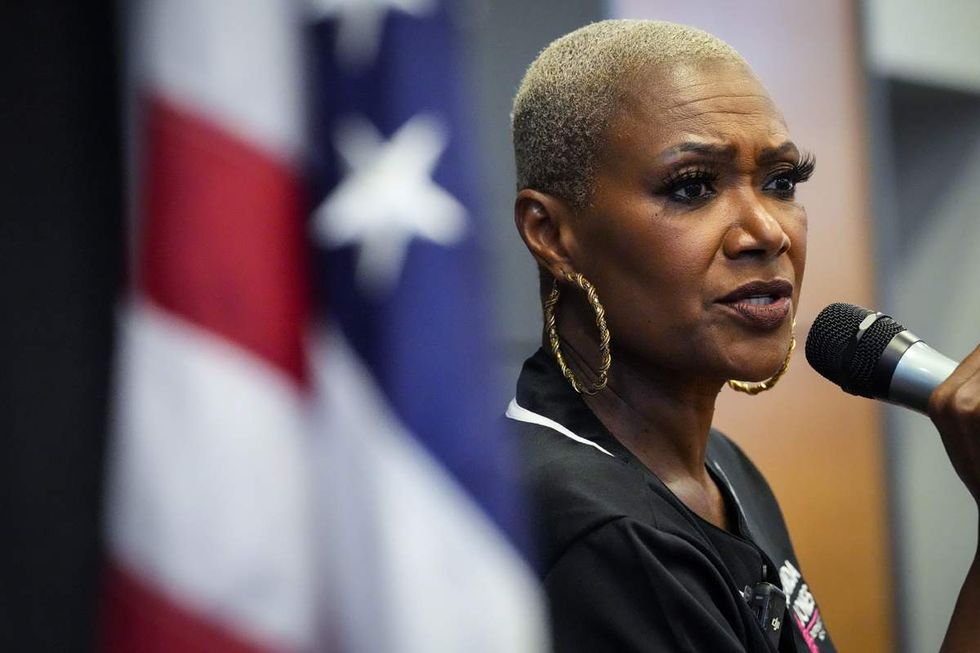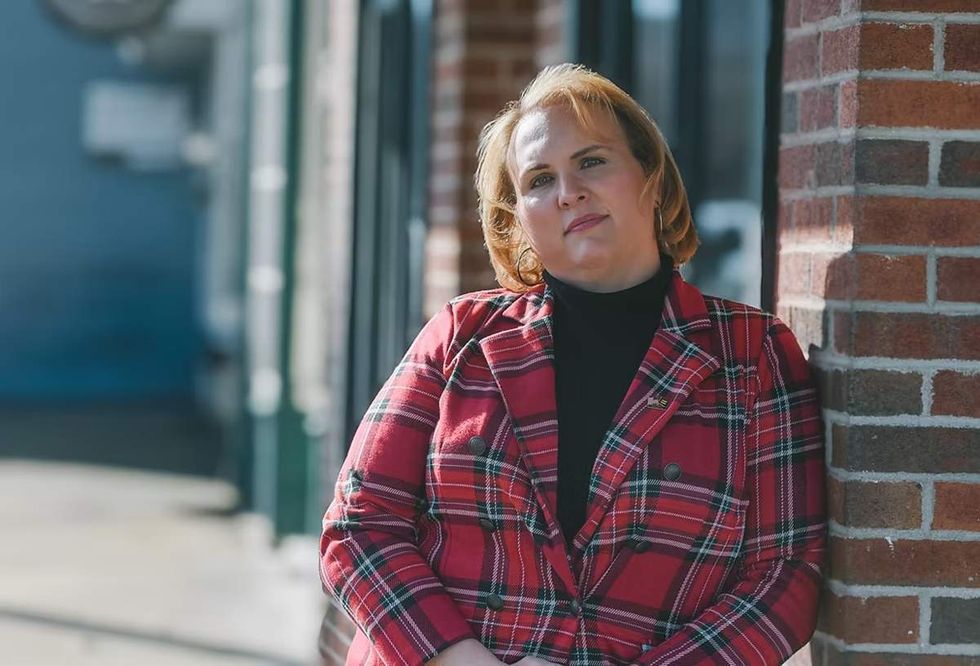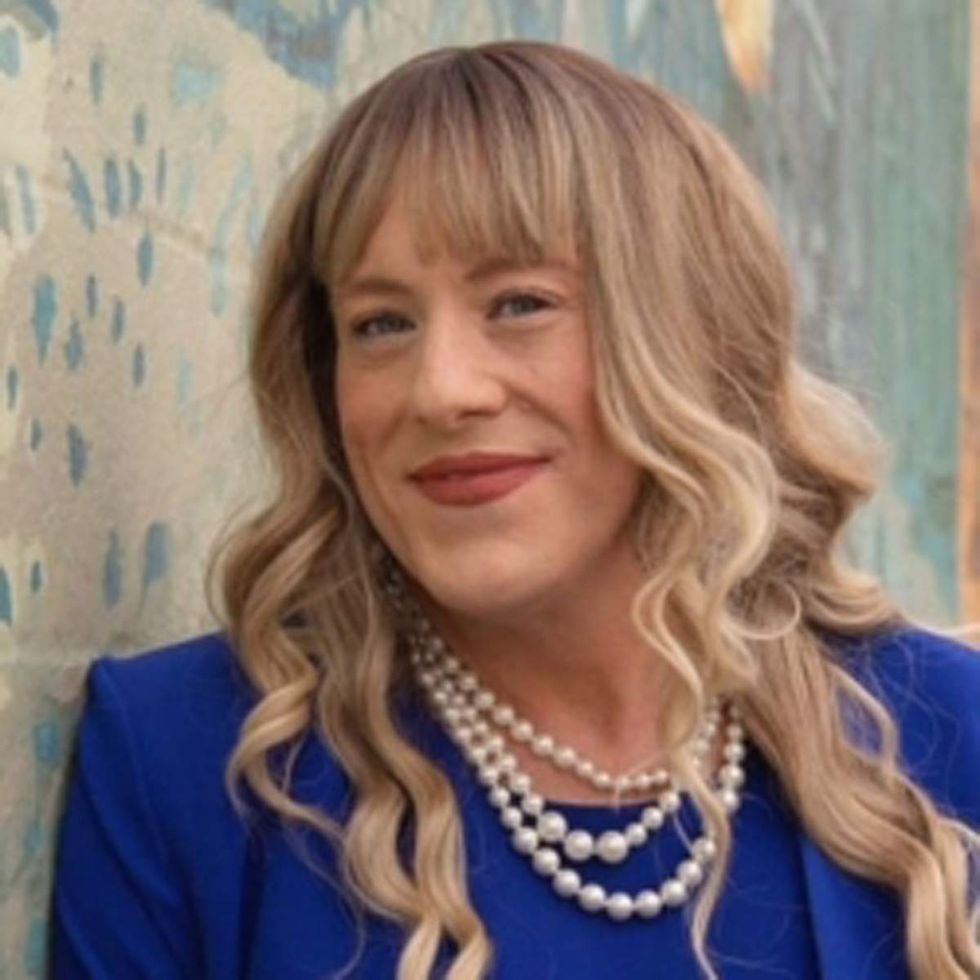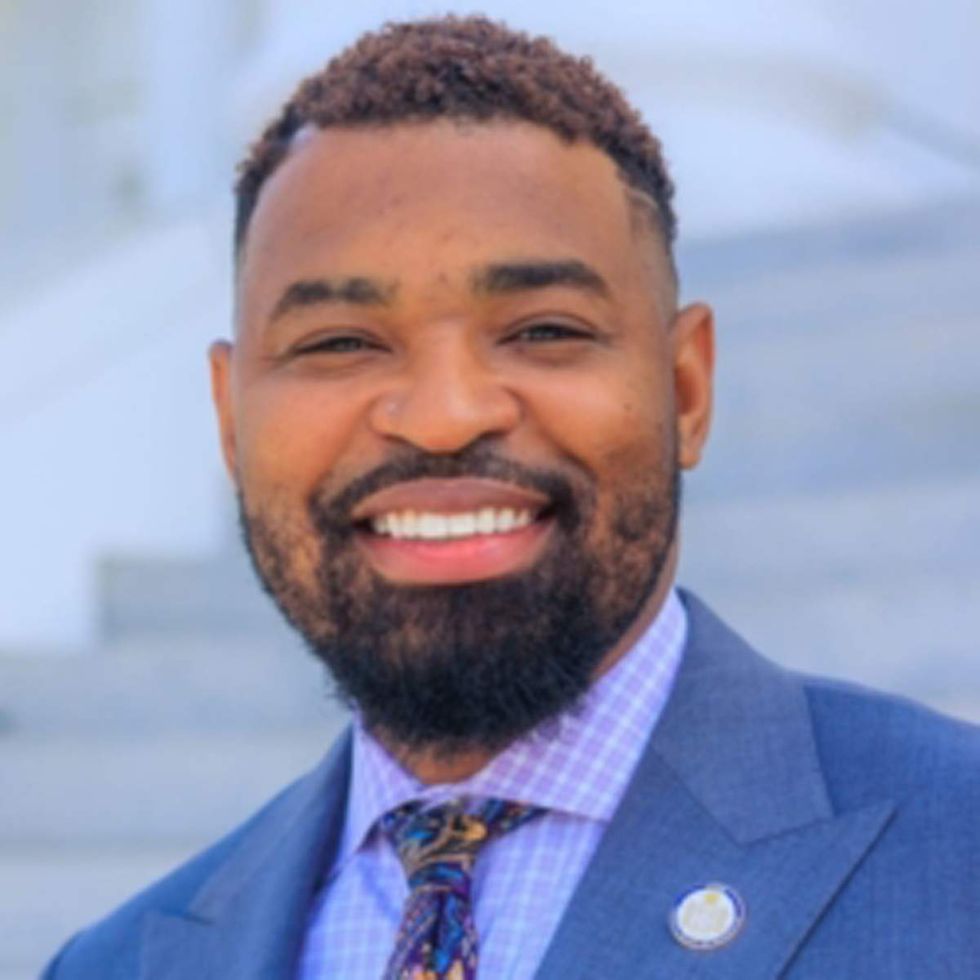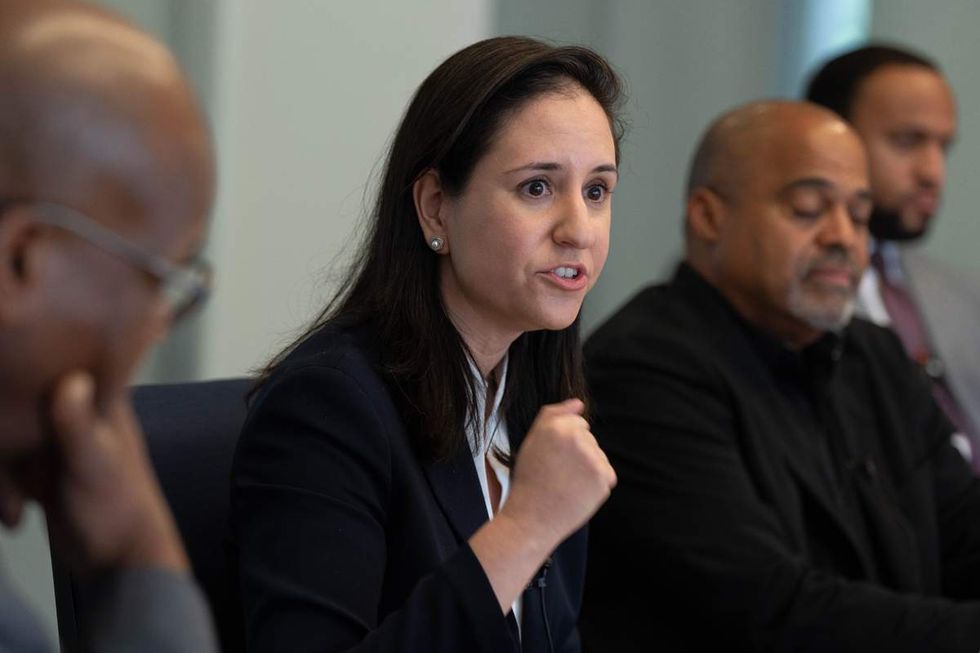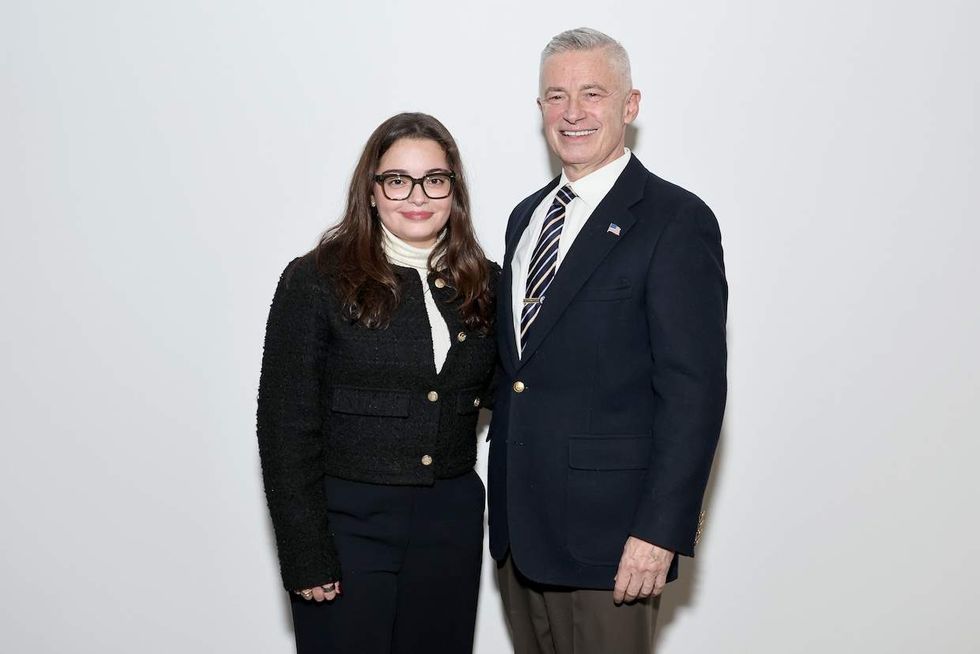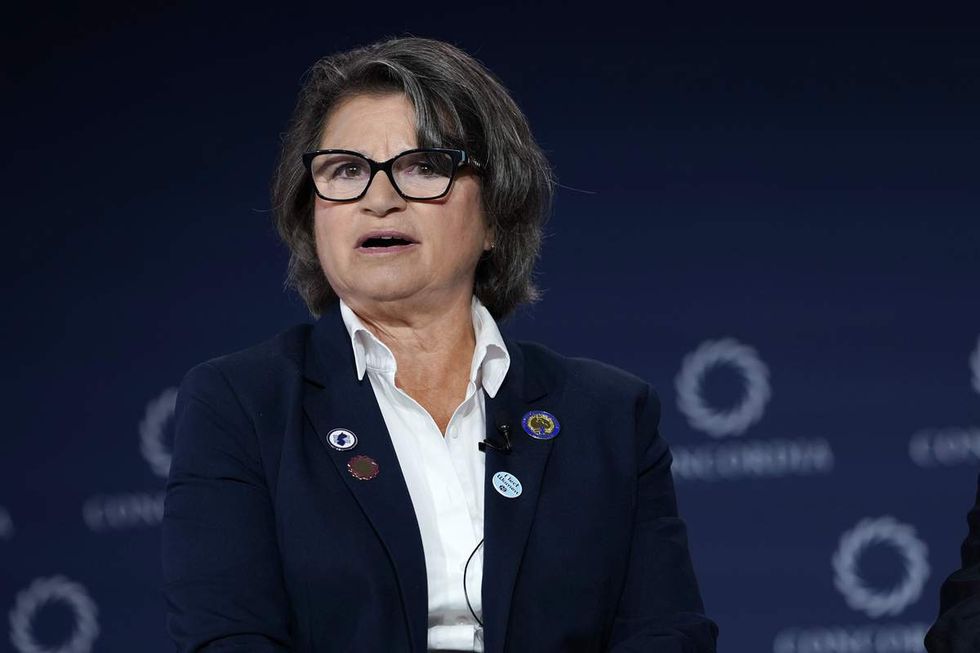On Friday, June 24, the U.S. Supreme Court officially overturned Roe v. Wade, the landmark ruling that established a constitutional right to an abortion since 1973. Meanwhile, a few Justices have expressed a desire to also overturn Obergefell v. Hodges, the ruling that legalized same-sex marriage in 2015.
Many individuals in the LGBTQ+ community are furious about this decision and afraid of what it means. In turn, queer people are also looking for ways to help, organizations to support, and how to fight back this latest Supreme Court ruling.
Here’s What Happened Today
Today, a 6-3 decision determined that Roe v. Wade should be overturned. The ruling’s final opinion was written by Justice Samuel Alito, who was joined by Justices Amy Coney Barrett, Brett Kavanaugh, Clarence Thomas, John Roberts, and Neil Gorsuch. Alternatively, Elena Kagan, Sonia Sotomayor, and Stephen Breyer dissented. The decision read:
“The Constitution does not confer a right to abortion; Roe and Casey are overruled; and the authority to regulate abortion is returned to the people and their elected representatives.”
The overturning of Roe v. Wade does not mean that abortions will be immediately outlawed in the entire U.S. – it means that any state can now choose to ban access to an abortion. It is likely that half of the states in the country will ban abortions and/or place very strict restrictions on them.
How This Impacts LGBTQ+ Youth
The overturning of Roe v. Wade impacts all individuals in the LGBTQ+ community who can pregnant. This can include certain cisgender women, transgender men, and non-binary individuals, among others — and their partners.
According to The Trevor Project, “nearly 70% of LGBTQ+ young people say efforts to restrict access to abortion often gave them stress or anxiety.”
Sarah Kate Ellis, President and CEO of GLAAD, issued the following statement regarding how the overturning of Roe v. Wade impacts the LGBTQ+ community:
“The anti-abortion playbook and the anti-LGBTQ playbook are one and the same. Both are about denying control over our bodies and making it more dangerous for us to live as we are. Both divide our country into free and less free, the opposite of what the United States should be. Our bodies, healthcare and our future belong to us, not to a meddling politician or extremist Supreme Court justices, and we will fight back.”
\u201cBoth divide our country into free and less free, the opposite of what the United States should be. Our bodies, healthcare and our future belong to us, not to a meddling politician or extremist Supreme Court justices, and we will fight back.\u201d— Sarah Kate Ellis (@Sarah Kate Ellis) 1656080338
Here’s How Queer Youth Can Fight Back
First of all, it’s important to acknowledge that a lot of pain and even fear may surface in reaction to this court ruling, which means that not all LGBTQ+ people will be able to immediately react with a fighting spirit. Charlotte Clymer wrote in a tweet:
“Feel what you feel today. If that’s anger, feel anger. If sadness, feel sadness. If you want to protest, go protest. If you need to step back and get recharged, do that. All of these are valid. Just make sure you’re carving out space for others and how they’re feeling today.”
\u201cFeel what you feel today. If that\u2019s anger, feel anger. If sadness, feel sadness. If you want to protest, go protest. If you need to step back and get recharged, do that. All of these are valid. Just make sure you\u2019re carving out space for others and how they\u2019re feeling today.\u201d— Charlotte Clymer \ud83c\udff3\ufe0f\u200d\u26a7\ufe0f\ud83c\uddfa\ud83c\udde6 (@Charlotte Clymer \ud83c\udff3\ufe0f\u200d\u26a7\ufe0f\ud83c\uddfa\ud83c\udde6) 1656083785
For those who are ready to join the fight against this ban on abortion, there are steps that can be taken:
Donate to the cause
On an immediate basis, several organizations that provide abortion services can be supported with actions and with donations, and many of them have been listed in the previous section of this article. As state governments start to enact bans on abortion locally, it is also important to support local organizations that can fight back.
New Voices for Reproductive Justice
Center for Reproductive Rights
National Black Women’s Reproductive Justice Agenda
Access Reproductive Care Southeast
Use your voice
Another action that can be taken is to make your voice heard on social media, in group chats with family members, and at in-person protests. However, it is very important to make sure that you are well-protected to make your voice heard.
In certain family dynamics, social media platforms, and in-person protests, you could be putting yourself at risk for speaking out as an LGBTQ+ youth. Therefore, make sure that you are not putting yourself at even more risk by publicly or privately protesting against the overturning of Roe v. Wade.
Vote, Vote, Vote
Last but certainly not least, all LGBTQ+ individuals over 18 years of age should be registered to vote and must make sure that they’re only voting for candidates who are willing to fight for them and protect their rights. In 2022, the U.S. is holding midterm elections that could significantly impact the fight for abortion rights.
Even if you aren’t 18 now you may be eligible to preregister now. Otherwise, make sure you register to vote before the next presidential election in 2024.
RELATED | Celebs Are Singing 'Gay' to Protest Florida's 'Don't Say Gay' Bills


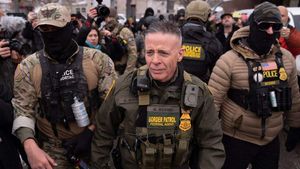




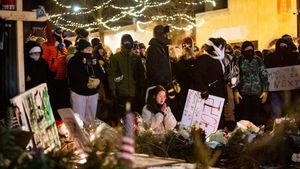


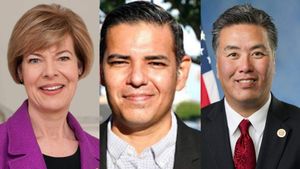

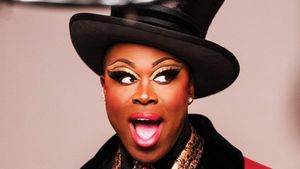










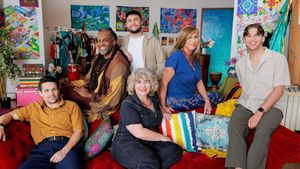
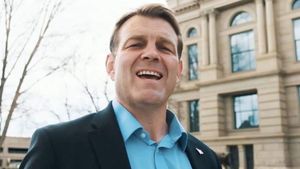





















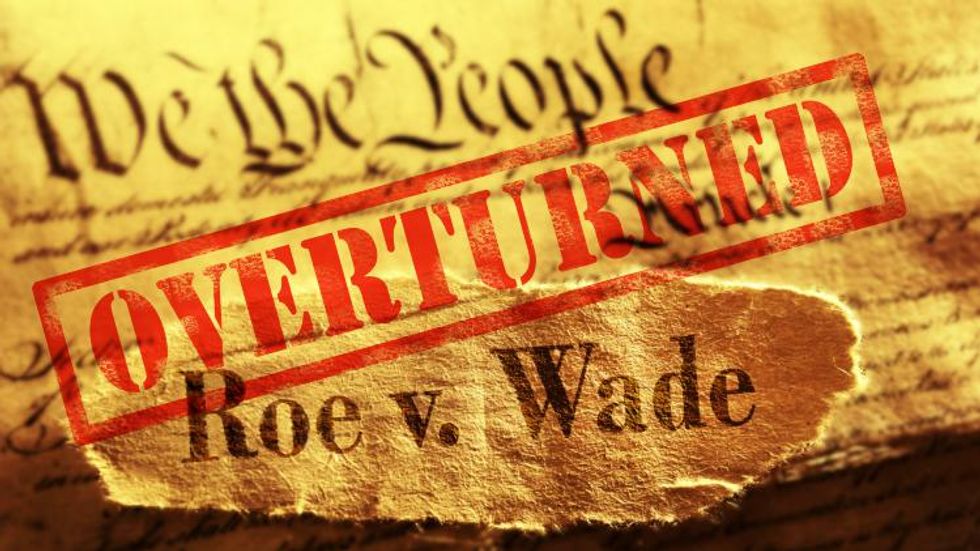
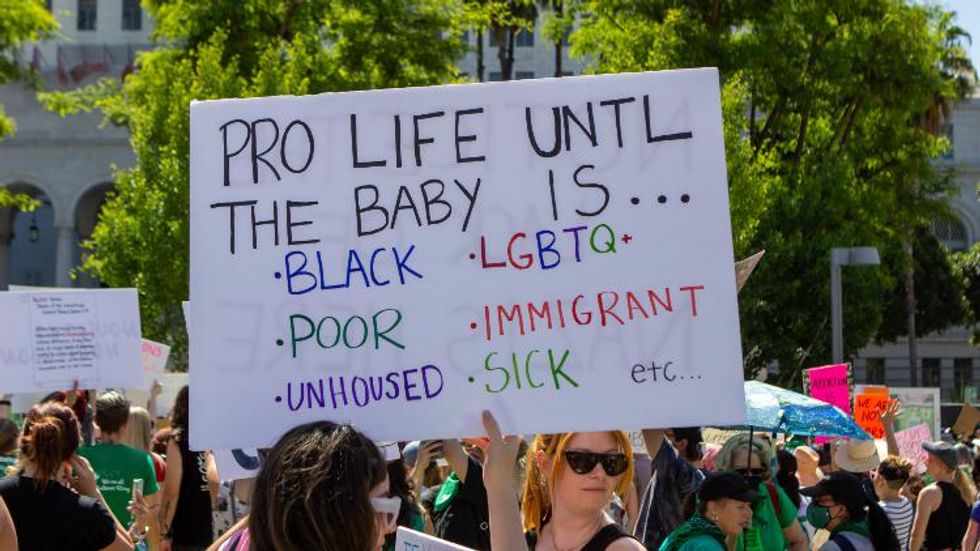
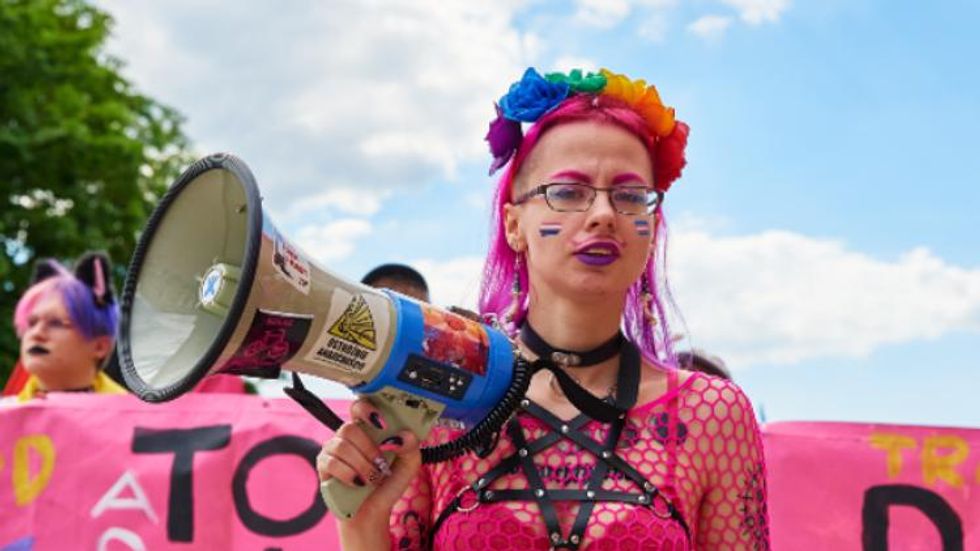
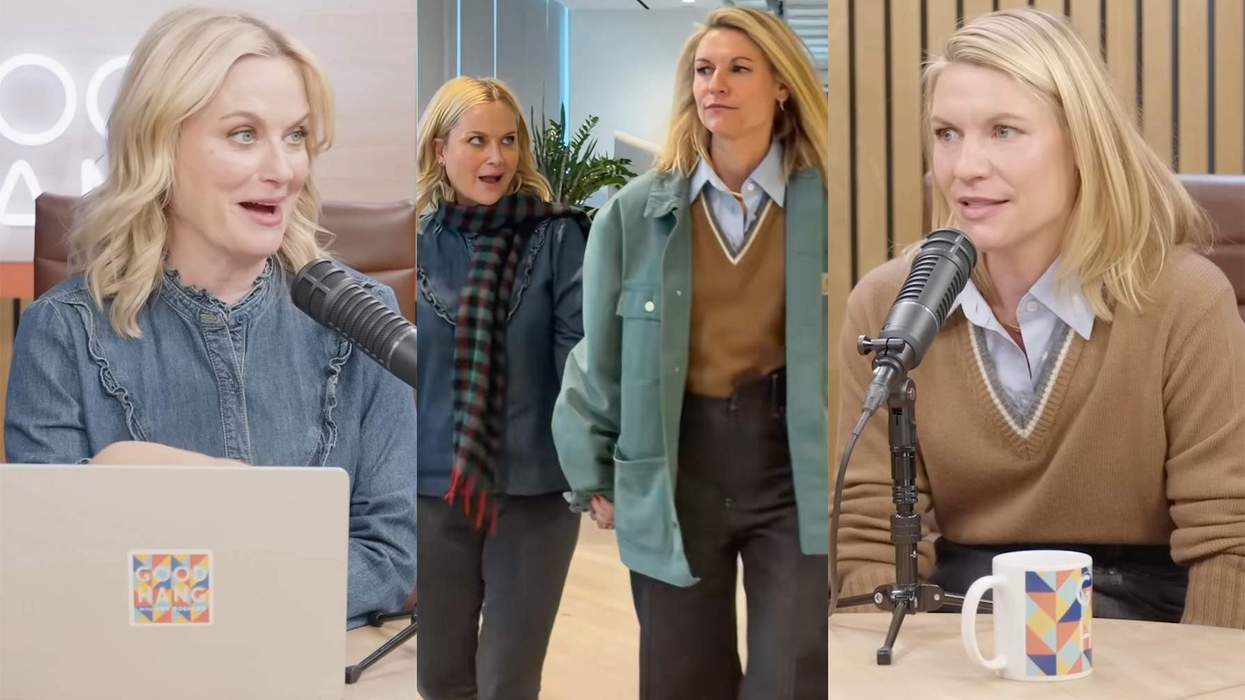
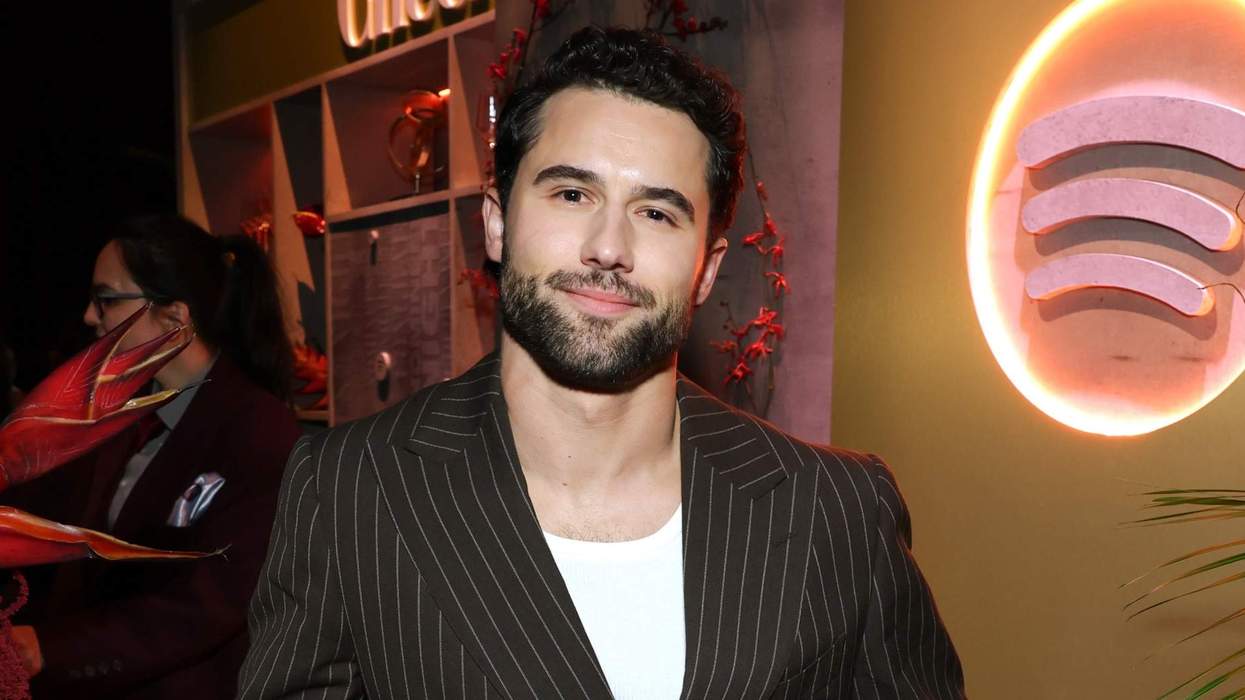
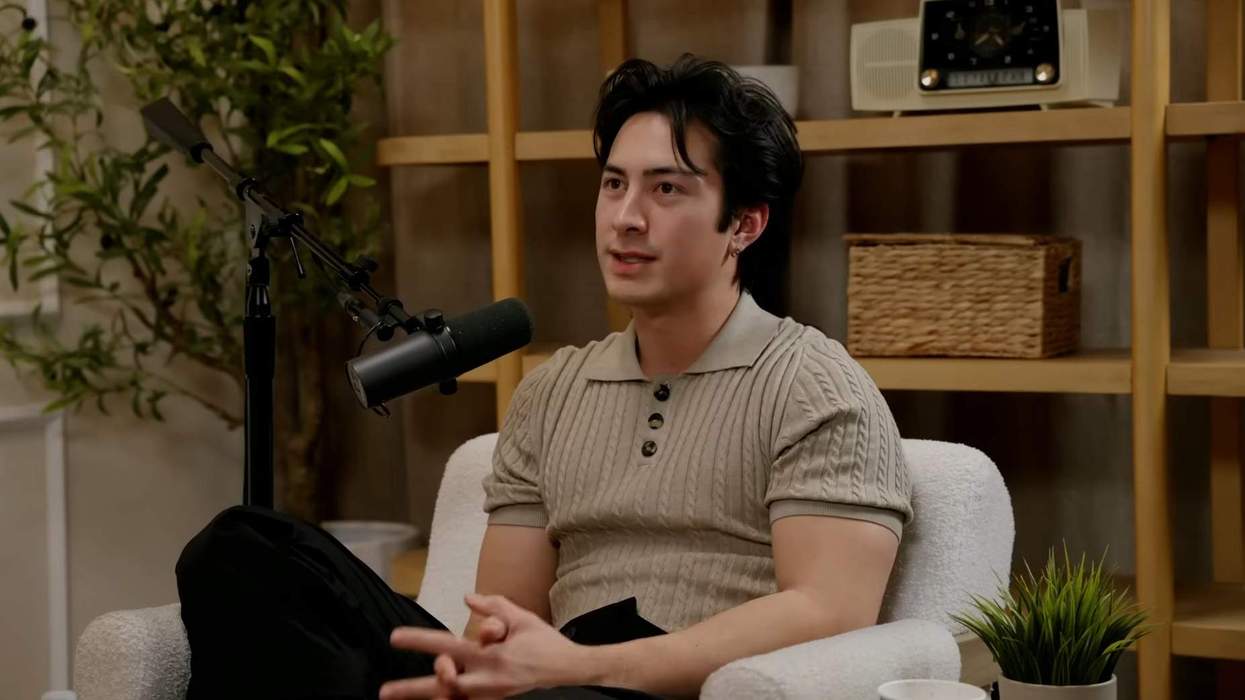







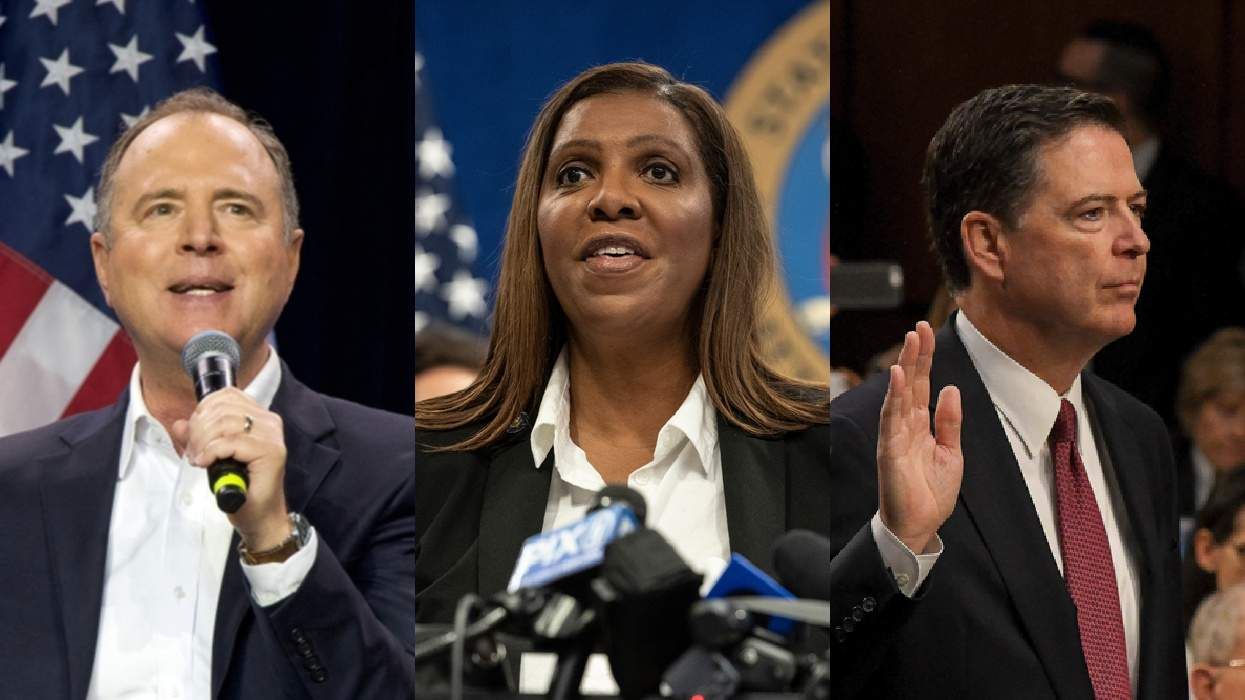
 Adam Schiff (L), Letitia James (C), and James Comey (R) — all political opponents of Trump indicted or investigated on dubious accusations.Sheila Fitzgerald/Shuttershock.com; lev radin/Shuttershock.com; mark reinstein/Shuttershock.com
Adam Schiff (L), Letitia James (C), and James Comey (R) — all political opponents of Trump indicted or investigated on dubious accusations.Sheila Fitzgerald/Shuttershock.com; lev radin/Shuttershock.com; mark reinstein/Shuttershock.com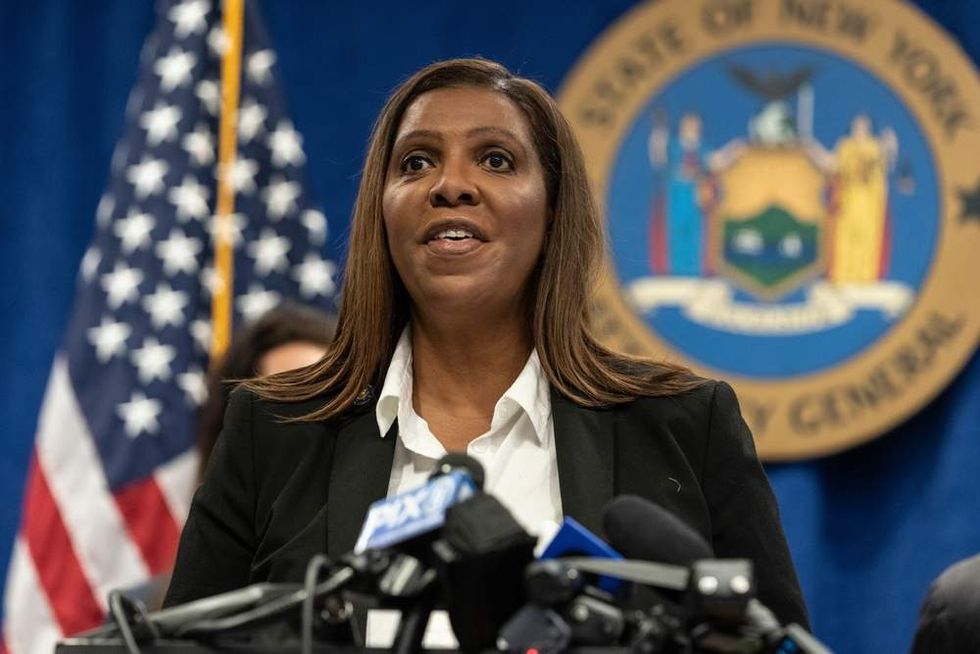
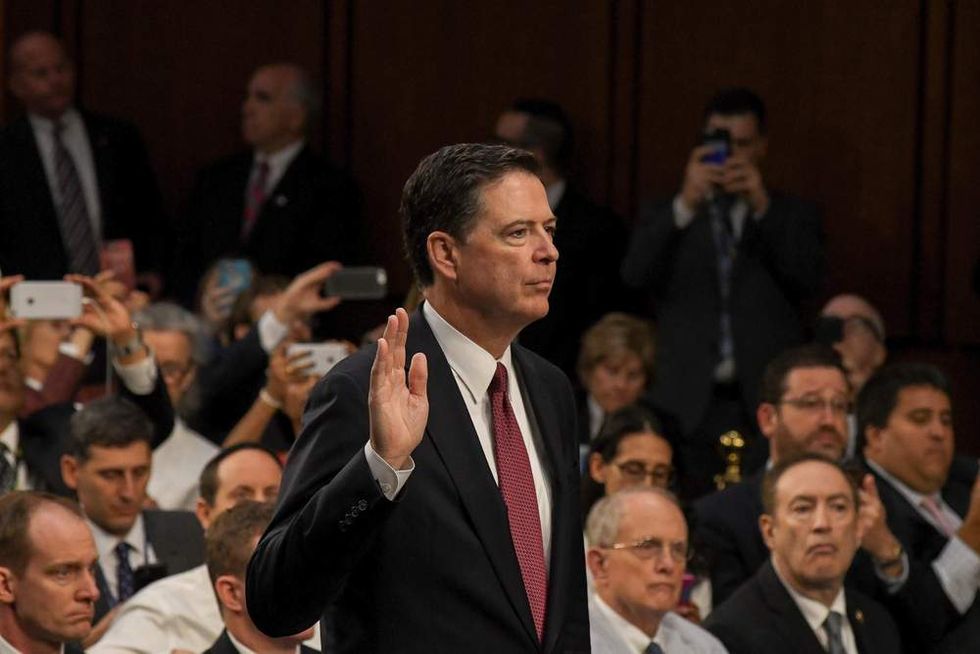

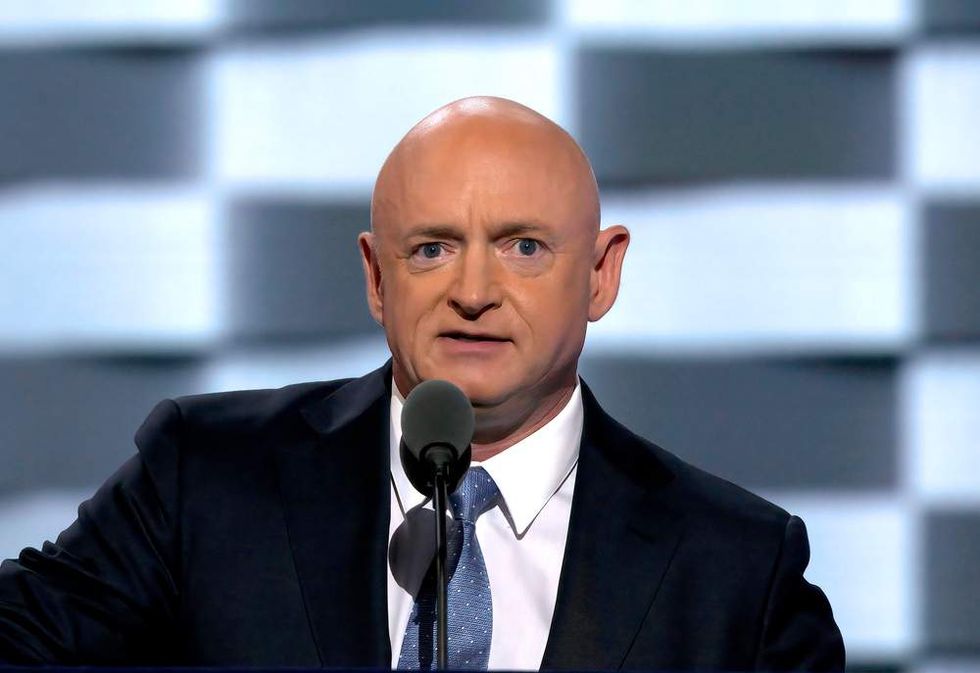
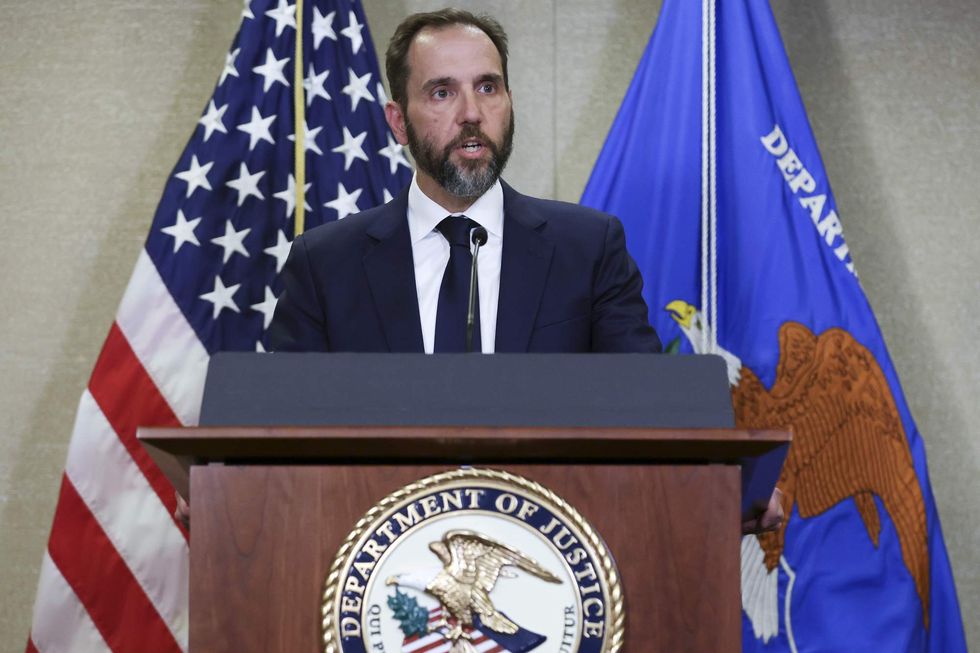
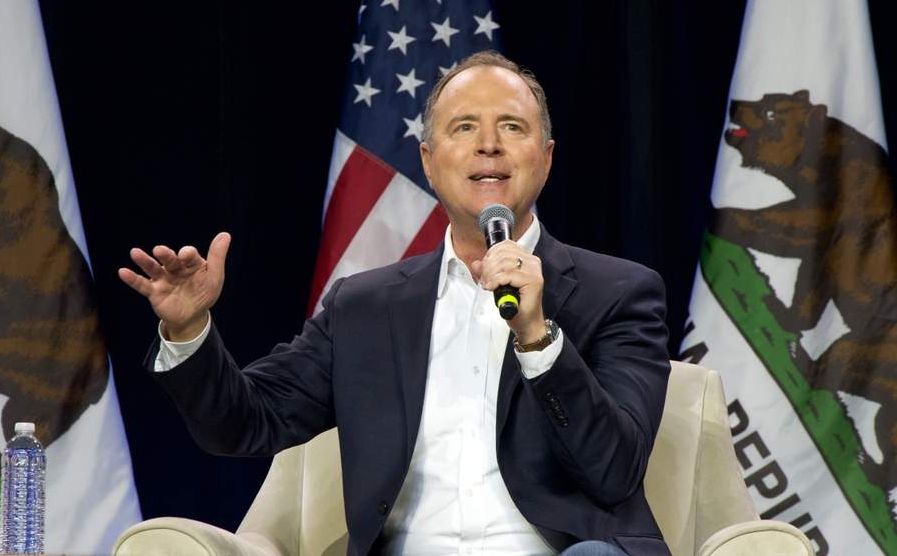
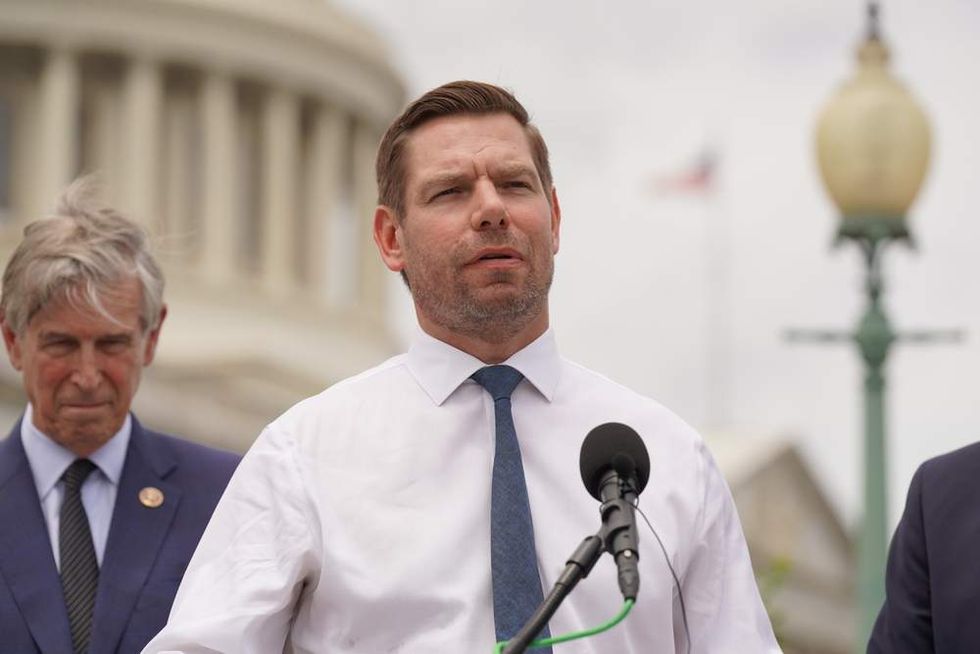
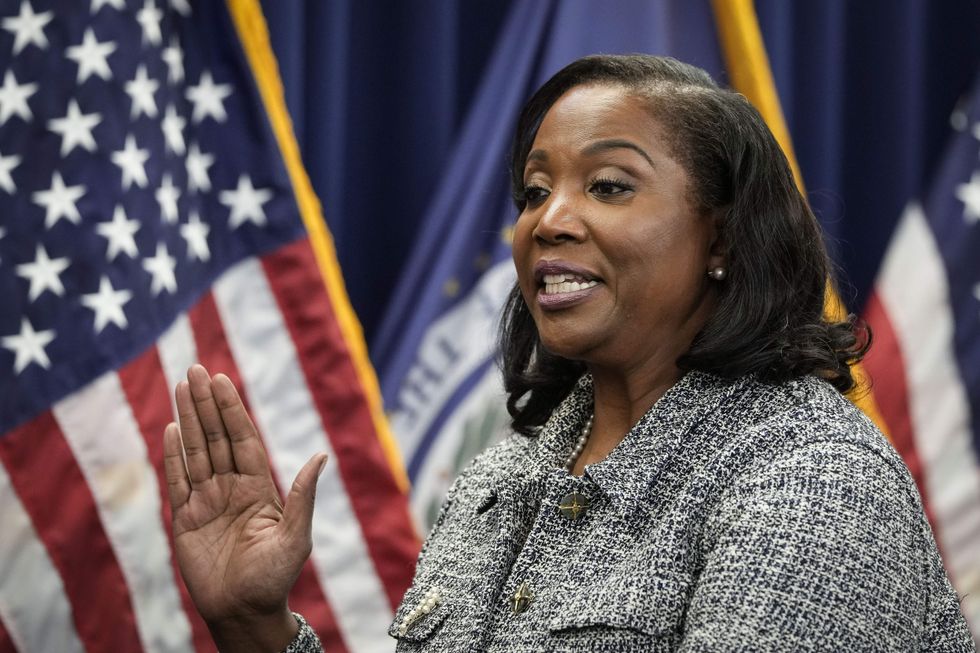
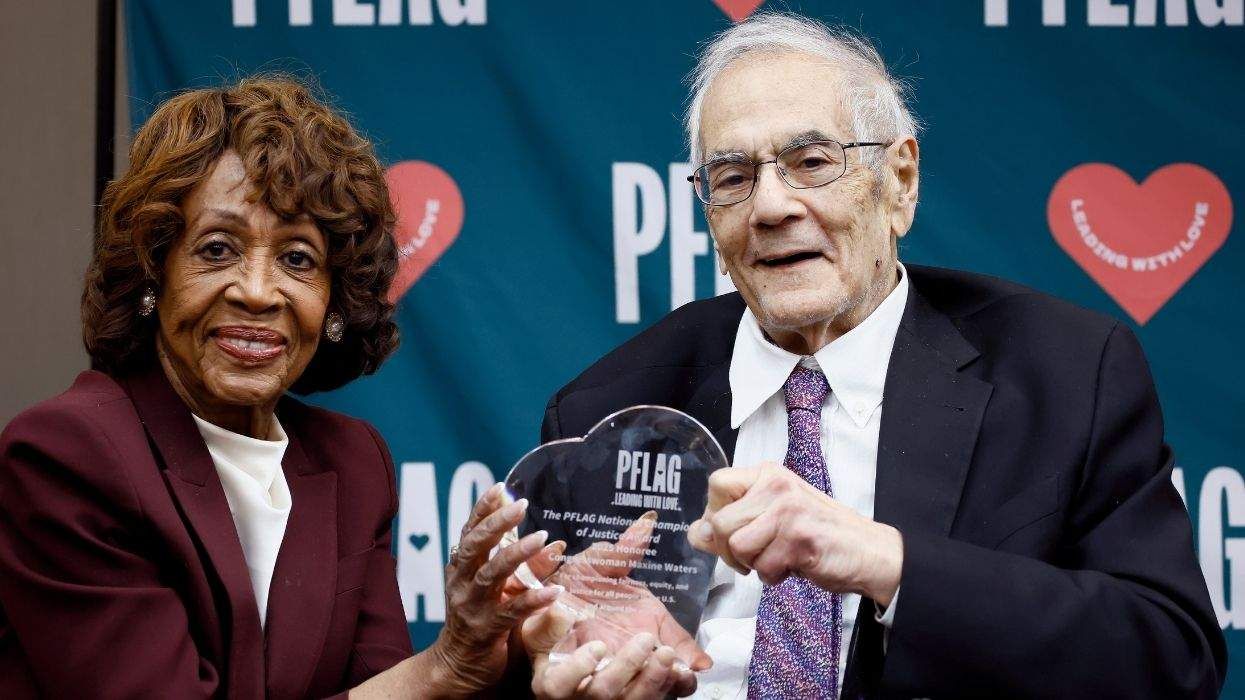
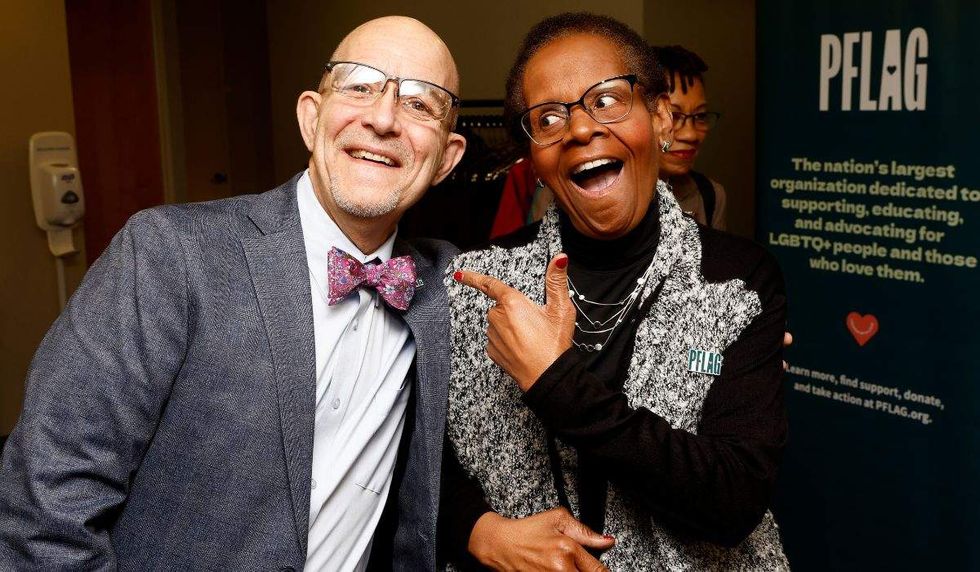 PFLAG National CEO Brian K. Bond and Edith Guffey, chair of the PFLAG National board of directors.Paul Morigi/Getty Images for PFLAG National
PFLAG National CEO Brian K. Bond and Edith Guffey, chair of the PFLAG National board of directors.Paul Morigi/Getty Images for PFLAG National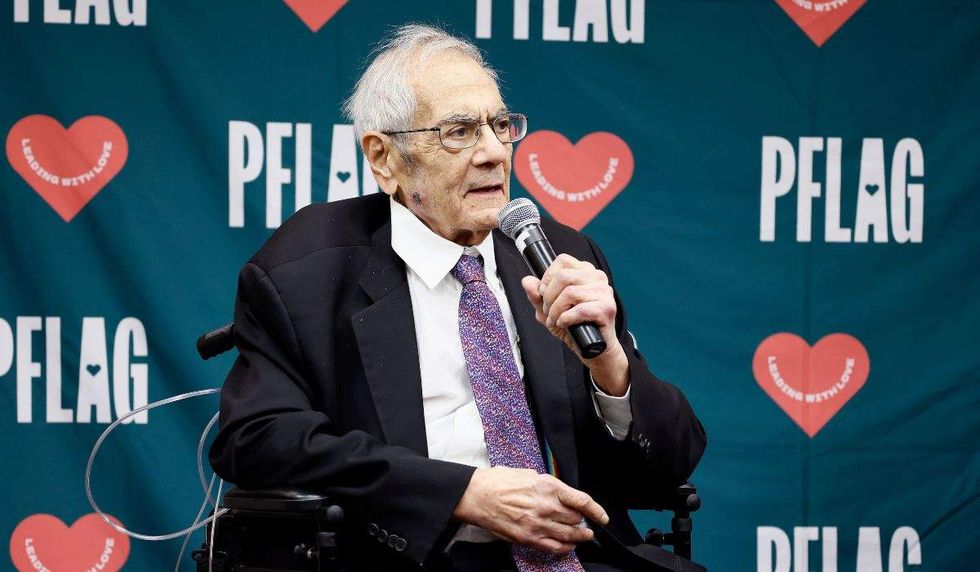 Former Massachusetts U.S. Rep. Barney Frank addressing a crowd at a PFLAG event.Paul Morigi/Getty Images for PFLAG National
Former Massachusetts U.S. Rep. Barney Frank addressing a crowd at a PFLAG event.Paul Morigi/Getty Images for PFLAG National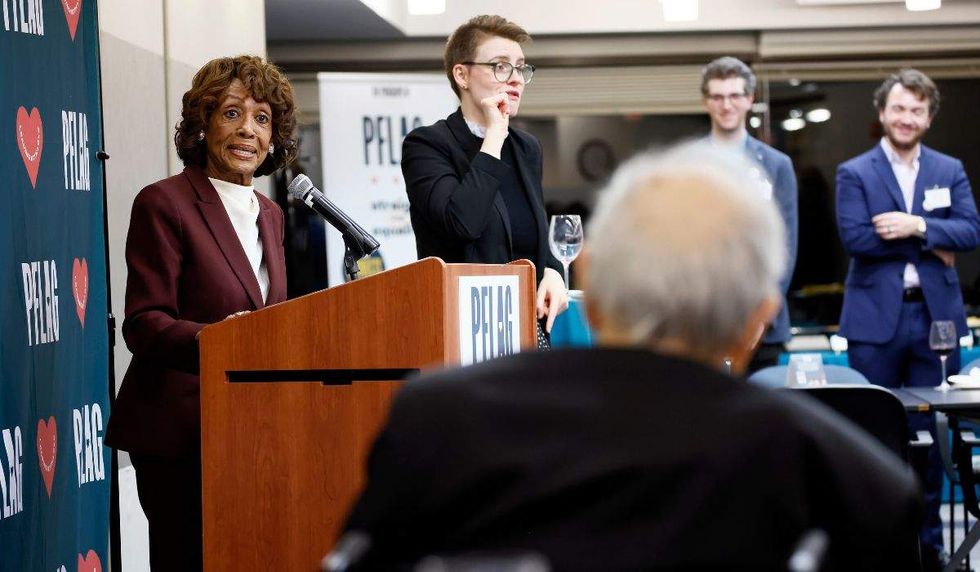 U.S. Rep. Maxine Waters talks about her relationship with former U.S. Rep. Barney Frank.Paul Morigi/Getty Images for PFLAG National
U.S. Rep. Maxine Waters talks about her relationship with former U.S. Rep. Barney Frank.Paul Morigi/Getty Images for PFLAG National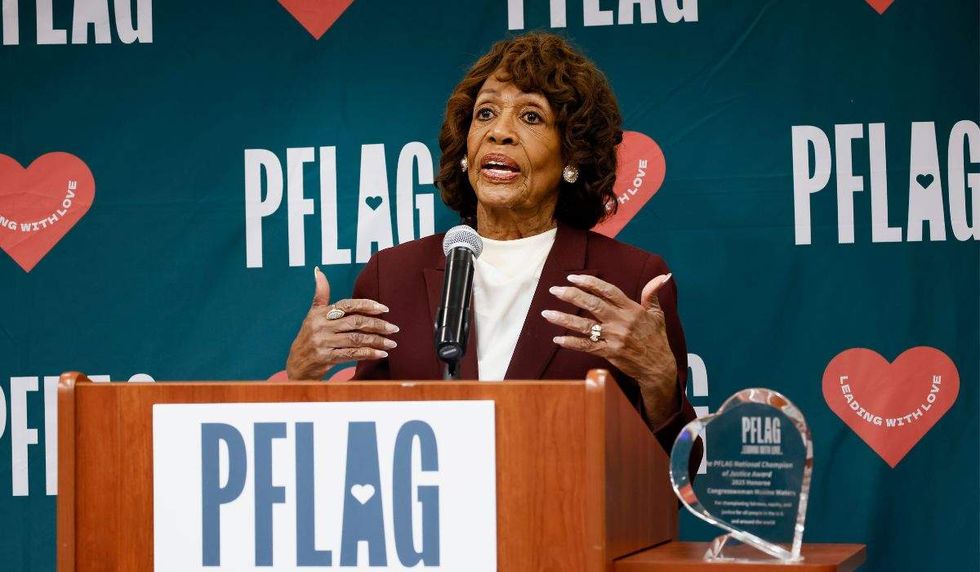 U.S. Rep. Maxine Waters accepting a PFLAG award.Paul Morigi/Getty Images for PFLAG National
U.S. Rep. Maxine Waters accepting a PFLAG award.Paul Morigi/Getty Images for PFLAG National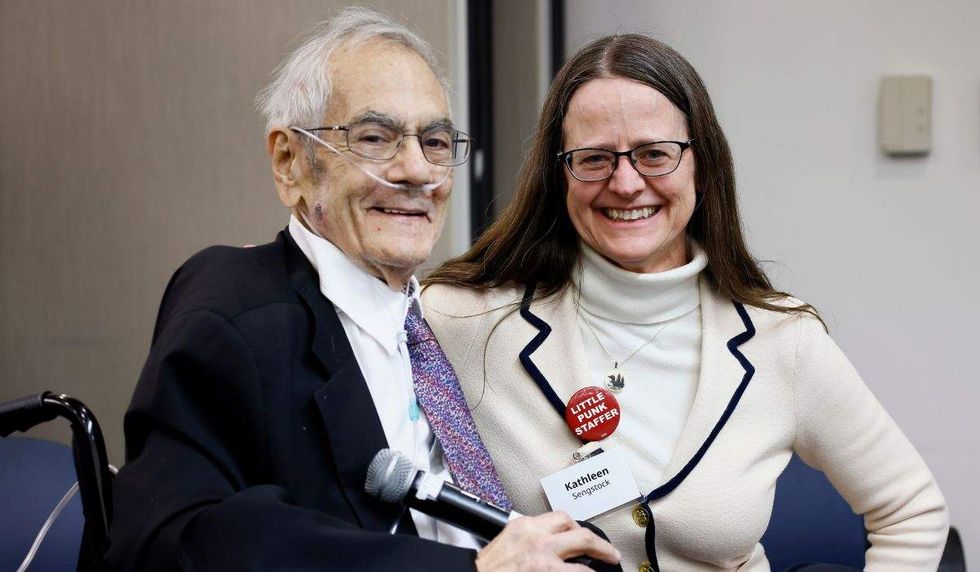 Former Rep. Barney Frank and Kathleen Sengstock.Paul Morigi/Getty Images for PFLAG National
Former Rep. Barney Frank and Kathleen Sengstock.Paul Morigi/Getty Images for PFLAG National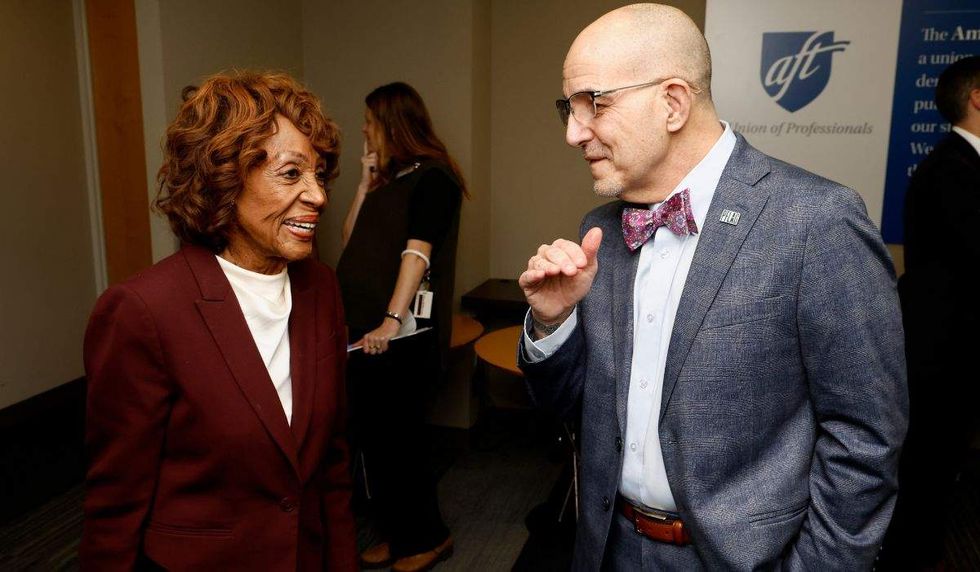 Rep. Maxine Waters and PFLAG National CEO Brian K. Bond.Paul Morigi/Getty Images for PFLAG National
Rep. Maxine Waters and PFLAG National CEO Brian K. Bond.Paul Morigi/Getty Images for PFLAG National
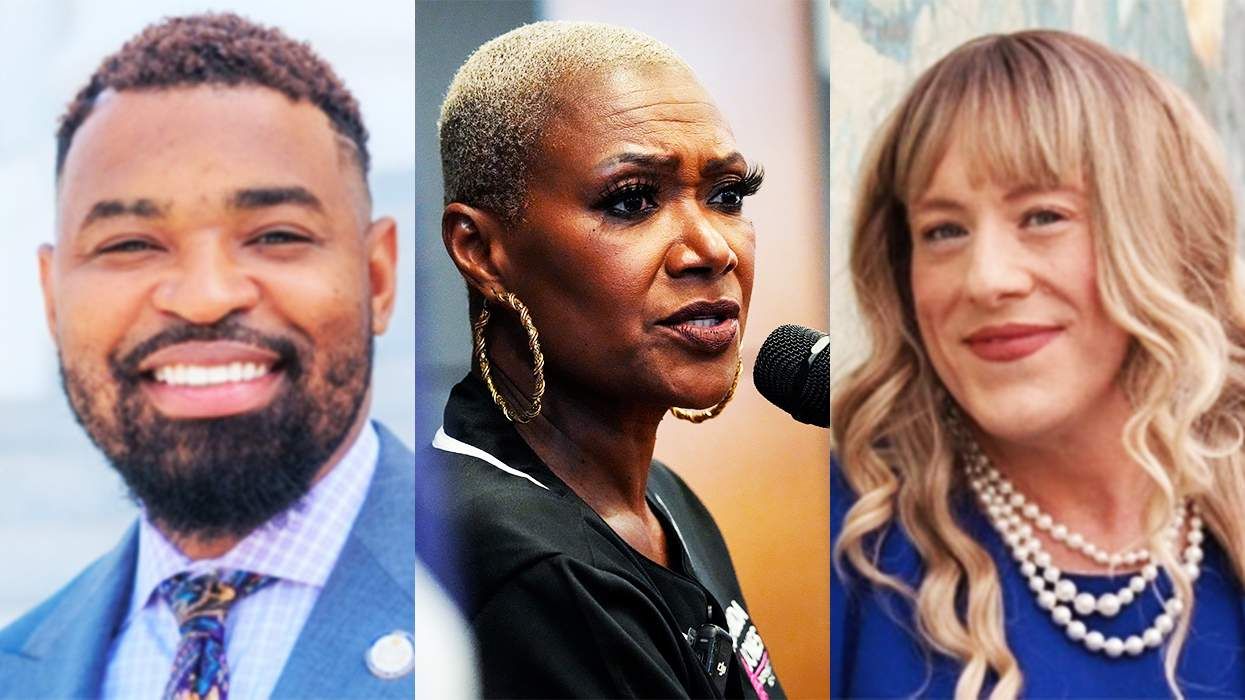
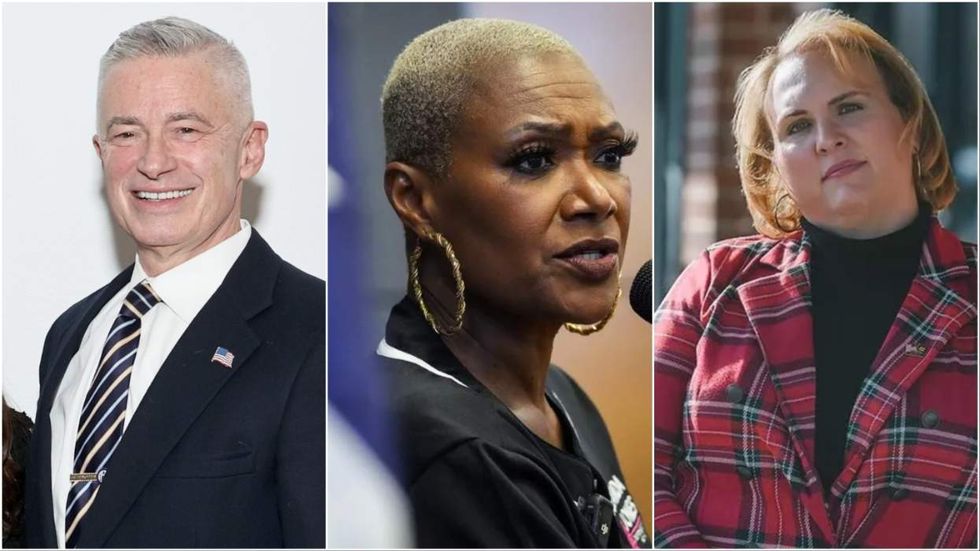 L-R: Jim McGreevey, Jolanda Jones, Erica DeusoJamie McCarthy/Getty Images; Brett Coomer/Houston Chronicle via Getty Images; ericadeuso.com
L-R: Jim McGreevey, Jolanda Jones, Erica DeusoJamie McCarthy/Getty Images; Brett Coomer/Houston Chronicle via Getty Images; ericadeuso.com